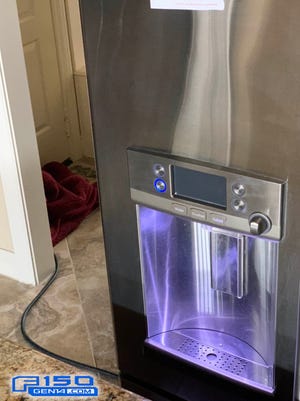This is what you need during the next long power outage
Truck has a generator
Texans trapped without electricity for days in their homes have suffered without heat or lights or the ability to run refrigerators or stoves despite freezing temperatures.
But Randy Jones, 66, a retired refinery worker from the town of Katy, outside Houston, and the owner of a 2021 Ford F-150 Hybrid truck with Pro Power onboard, generated envy on social media after posting images of how he's using his pickup to power his home and help neighbors during the blackout affecting millions in the Lone Star State.
"We were out from Sunday through Wednesday evening," he said early Thursday. "It's been miserably cold and frustrating to have loss of power for that many days."

The experience felt like a bad movie, something Jones said he couldn't really describe in words that would be printable in a family newspaper.
"You're living your life normally and all of a sudden you're thrust into the dark. I think it got around 9 degrees. It's been in mid-20s and low 30s. You don't expect that in south Texas. You don't expect to lose power when we have nuclear, natural gas, wind and solar power," he said. "The truck gave us light at night, TV access to catch the news and weather. It helped give us a little bit of heat and a good pot of coffee."

He just bought his new F-150 the first week of February, replacing his 2015 F-150, which replaced his 2010 F-150.
"We have hurricanes down here more than freezes. We went through two hurricanes just a few months ago," Jones said. "I bought the truck specifically because of the generator for my own safety. I'm happy I bought it. Some of my neighbors are too, because they could charge their cellphones and iPads off my power supply."
This is actually very cool to me







